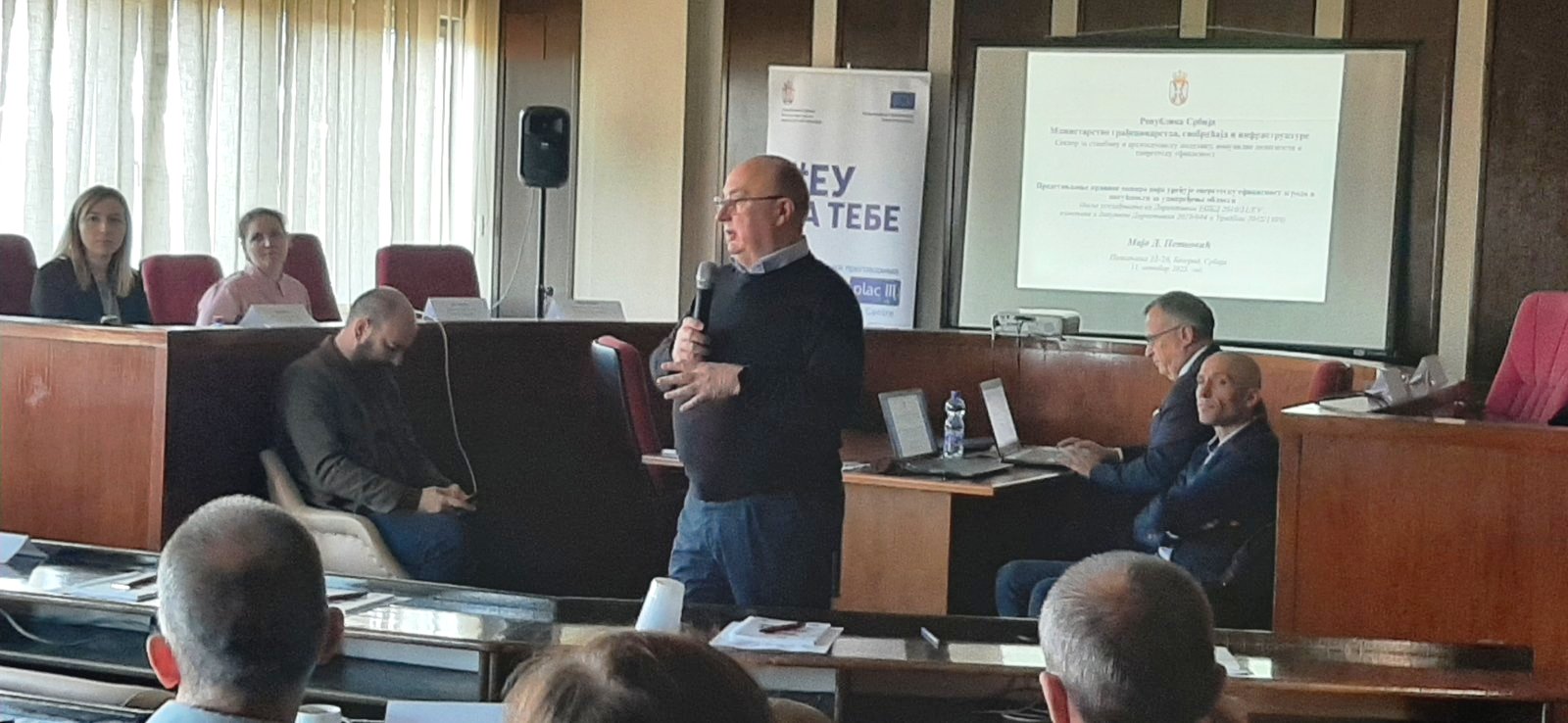By drafting amendments to the Law on Planning and Construction and amendments to by-laws in the field of energy efficiency of buildings, the PLAC III project has continued to support the beneficiary institution - the Ministry of Construction, Traffic and Infrastructure in harmonising national legislation with EU acquis.
Energy efficiency of buildings is the area of Negotiating Chapter 15, which Serbia has opened in December 2021, as part of Cluster 4 under the new enlargement methodology. The Union acquis that regulates the area includes the amended Energy Performance of Buildings Directive 2010/31/EU (EBPD). That directive was amended by Directive 2018/844 and Regulation 2018/1999 on the management of the Energy Union and climate action.
As steps for the transposition of the amended EPBD Directive, the National Programme for the Adoption of European Union Acquis envisages amendments to the Law on Planning and Construction as well as the adoption of amendments to the Rulebook on Energy Efficiency of Buildings and the Rulebook on the Conditions, Content and Manner of Issuing Certificates on the Energy Properties of Buildings by the end of the third quarter of 2024.
At the workshop held on October 11, project experts Zoran Nenezić, Goran Vučković and Radmilo Savić presented the results of their work: legal gap analysis of the national legislation in relation to the amended EPB Directiveprovisions governing minimum energy performance requirements, optimisation of the energy uses of technical building systems, NZEB and inspection of heating systems. They have also presented examples of best European practice in the transposition and implementation of EPBD as well as draft amendments to the Law on Planning and Construction and two rulebooks that regulate the area of energy properties of buildings and the way of issuing certificates on energy properties of buildings. The proposed documents are in compliance with the requirements of the amended EPB directive. The proposed new articles of the Law on Planning and Construction relate to the energy audit of buildings, near zero energy buildings (NZEB), zero emission buildings, the energy renovation program and electro-mobility.

The experiences of Croatia, Portugal, the Netherlands and Austria were presented as the best examples of EU practice in the transposition and implementation of the EPB directive.
As the experts suggested, for full harmonisation, a detailed methodology for conducting the energy audit of the building, for the purposes of energy certification, should be regulated by a special rulebook. It was also recommended to adopt a rulebook on authorizations for energy certification and energy inspections of buildings and conducting training and education programmes.
The workshop was attended by representatives of the relevant Ministry as well as of stakeholder organisations.



